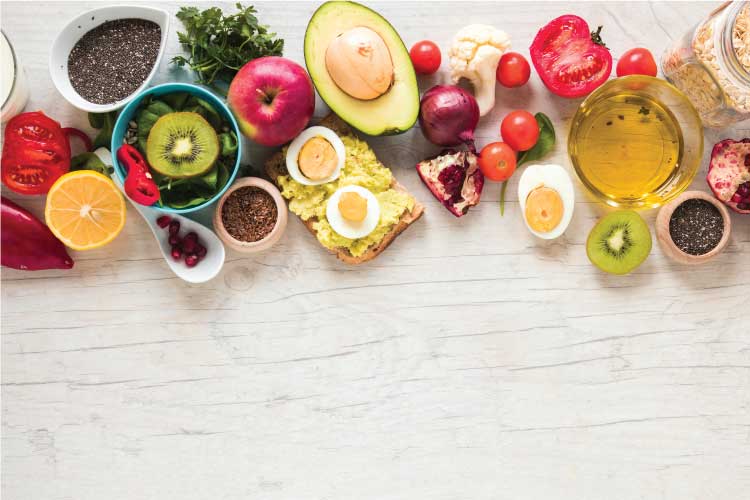The growing years are the most important developmental phase of a child’s life, for more reasons than we realise. For one, the right kind (and amount!) of nutrition is crucial so that harmful deficiencies can be prevented. Also, just as important, it’s the best time to build healthy eating habits for a lifetime of benefits. Read on.
Variety is the key to proper nutrition
We’ve all heard this before, about the ideal diet consisting of colourful foods, particularly when it comes to fruits and vegetables. This applies to children too, and it is basically to ensure that they receive all the vitamins, minerals and fiber needed to grow up strong and healthy. It can be quite stressful for parents though, especially those whose children seem to like only certain foods and refuse to eat much of anything else. This is probably why parents are often advised to start their kids on proper, well-balanced diets from as young as possible. Let’s take a look at some of the key nutrients that children need to take in on a daily basis, so as to make the most out of their crucial developing years.
Protein
What do meat, chicken, fish, and even beans have in common? They all contain protein, which a child’s body needs for various important functions including building cells, breaking down nutrients for energy and also fighting off infections. Children need to have good amounts of this nutrient everyday from the following foods.
- Meat
- Poultry
- Eggs
- Nuts
- Bean
- Dairy Products
Calcium
Calcium is not merely an essential nutrient that helps to build healthy bones and teeth. It has a range of other functions as well, such as blood clotting, as well as for aiding in the proper function of nerves, muscles, and the heart. Calcium-rich foods that should be served to kids include:
- Milk
- Cheeses
- Yogurt
- Ice-cream
- Egg yolks
- Broccoli
- Spinach
- Tofu
Carbohydrates
Carbohydrates are a child’s main source of energy and they come in several different forms (sugars, starches, and fiber). Parents should ensure that their child eats more of the starches and fibers and less of the sugar. Foods that contain high levels of carbohydrates include:
- Bread
- Potatoes
- Cereals
- Rice
- Bananas
- Pasta
Vitamin A
This important vitamin helps with growth and assists the eyes in adjusting to dim and bright lights. It also keeps skin healthy and works to prevent infections. Foods that contain high levels of Vitamin A include:
- Pumpkin
- Papayas
- Mangoes
- Carrots
- Egg yolks
- Spinach
- Broccoli
Vitamin C
Vitamin C is well-known as the nutrient kids need to fight off the common cold. However, it’s also important for building collagen, which helps to hold the body’s cells together. Vitamin C helps to strengthen the walls of blood vessels and helps the body heal wounds. Foods that contain high levels of Vitamin C include:
- Oranges
- Kiwi fruit
- Melons
- Tomatoes
- Berries
- Cabbage
Iron
This nutrient is mainly linked to healthy blood for it helps in carrying oxygen to cells all over the body. Iron can be found in two forms – heme iron (found in meats), and non-heme iron (found in plant foods). The following foods are rich in iron:
- Red meats
- Poultry
- Liver
- Shellfish
- Whole grains
- Nuts
- Beans
- Iron-fortified cereals
Healthy fats
Children use up a lot of energy growing up, and they need good sources of energy too. Fats are a great source of energy for kids and even if they’re stored in the body, active kids have no problem burning it off as energy! Fats are also important in helping the body to properly use some of the other nutrients it needs. Foods that contain high levels of fats include:
- Whole-milk dairy products
- Cooking oils
- Meat
- Fish
- Nuts
















